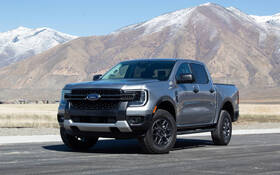2024 Ford Ranger: A Muscular Evolution Lacking an Electrified Option
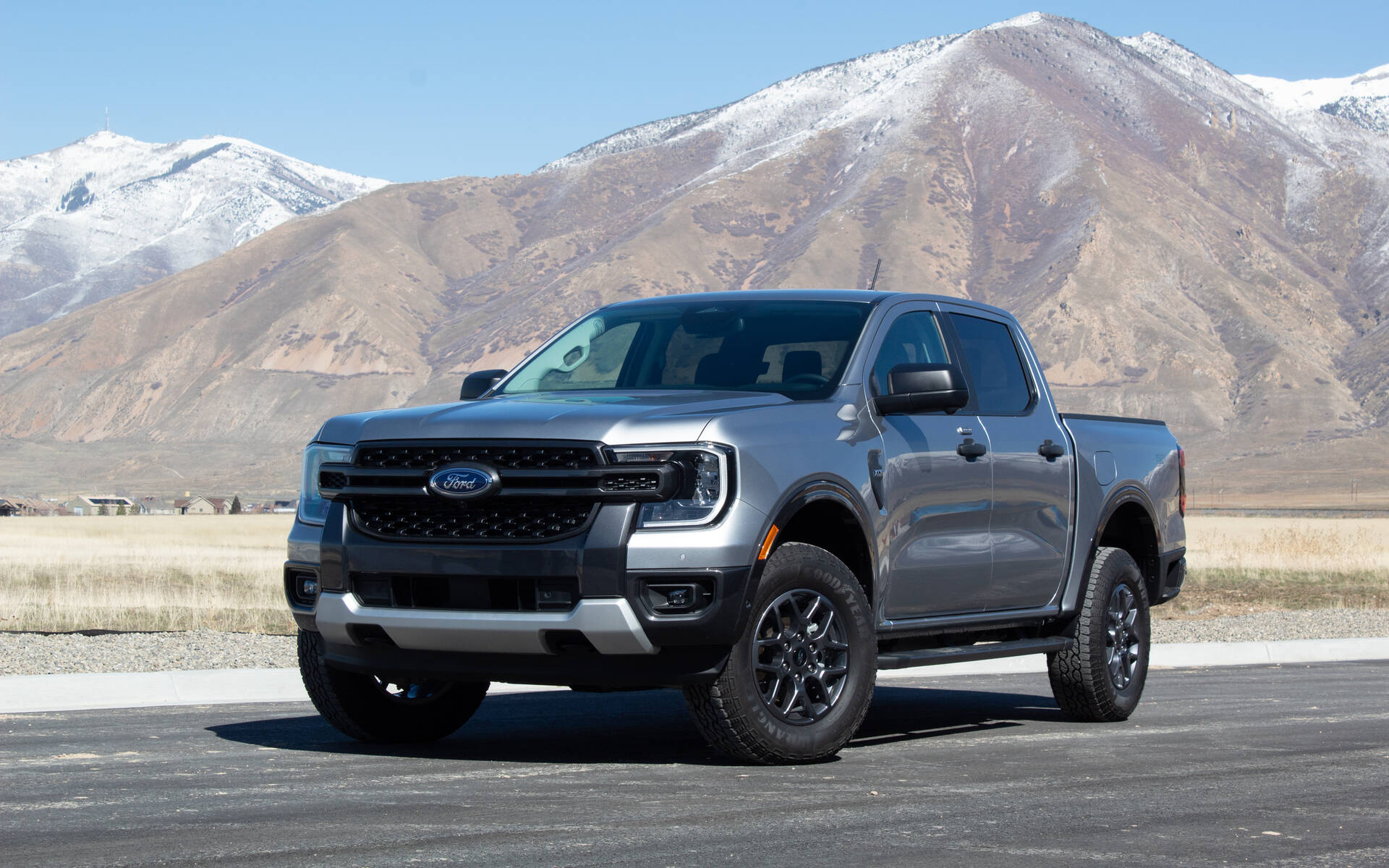
| Strong points |
|
|---|---|
| Weak points |
|
The redesigned and more rugged 2024 Ford Ranger is now on sale in Canada, flexing more muscle while featuring a refreshed interior with state-of-the-art displays.
Similar to many competitors in the midsize pickup segment (Chevrolet Colorado, GMC Canyon, Jeep Gladiator), it’s available in a single body style with a SuperCrew cab allowing normal-sized adults to sit in the rear. Powertrain selection includes four- and six-cylinder EcoBoost options.
- Also: Ford to Build More Broncos and Rangers, Fewer F-150 Lightnings
- Also: 2024 Ford Ranger: Five Things to Know
The Car Guide flew to Salt Lake City, Utah to test drive the new Ranger and its 2.3-litre turbocharged engine. If you’re more interested in the turbocharged 2.7-litre V6 producing 315 horsepower and 400 lb-ft of torque, you’ll have to wait until the summer.
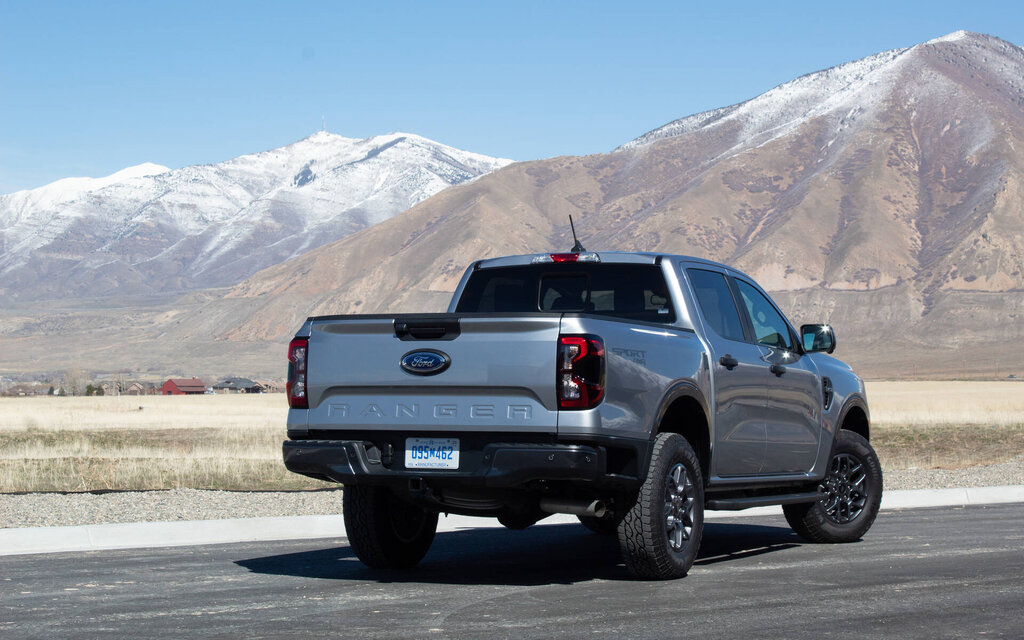
Updated Cabin
While fit and finish is improved inside, a number of things remain unchanged. The controls are arranged in pretty much the same layout as before, with Ford choosing to keep many physical buttons including for the HVAC system. The latter can also be controlled through the new SYNC 4A infotainment system, which is generally responsive and user-friendly.
The standard 10.1-inch or available 12-inch touchscreen shows clean graphics with the main functions (phone, media, navigation, towing) in the form of icons at the bottom of the screen. A 4G hot spot is included, as well.
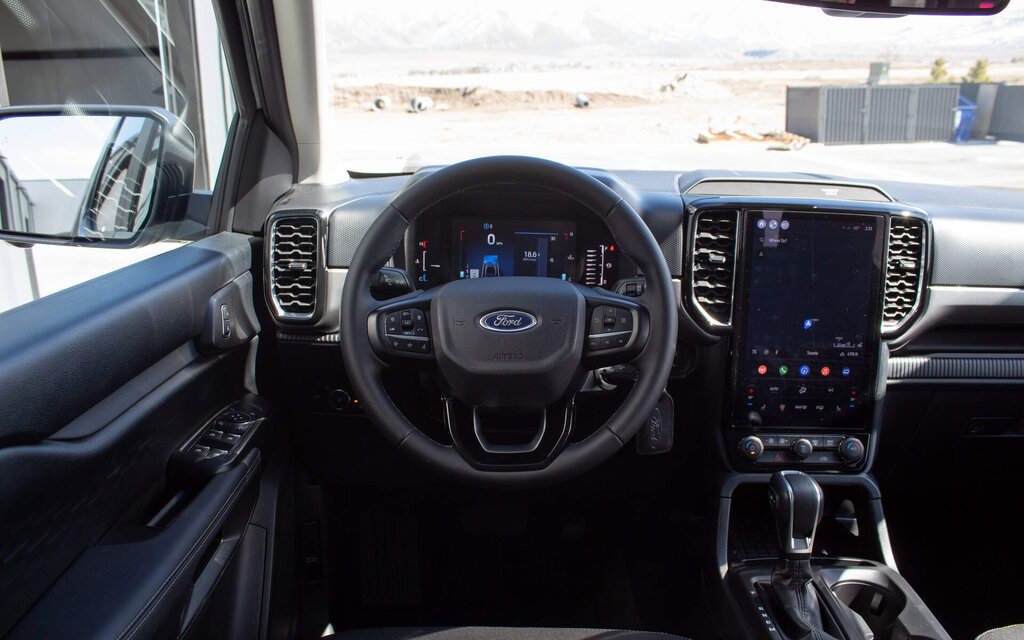
Now, let’s talk about practicality. The rear bench flips up to reveal two storage compartments offering more volume than previously. A 60/40-split seat such as GM’s would have been nice, but it’s not like it’s a deal breaker, either.
The 4.9-foot-long cargo bed, meanwhile, boasts a maximum payload of 1,711 lbs. Ford took a page from its main rival and incorporated corner steps into the rear bumper for easier access to the bed. You need to pay extra to get them, however, but it’s certainly money well spent. As for towing, the Ranger is rated at up to 7,500 lbs.
Solid Powertrain
The turbocharged 2.3-litre four-cylinder engine fires up smoothly, and you can no longer hear the fuel injectors, which is more pleasant to the ear and adds to the driving experience.
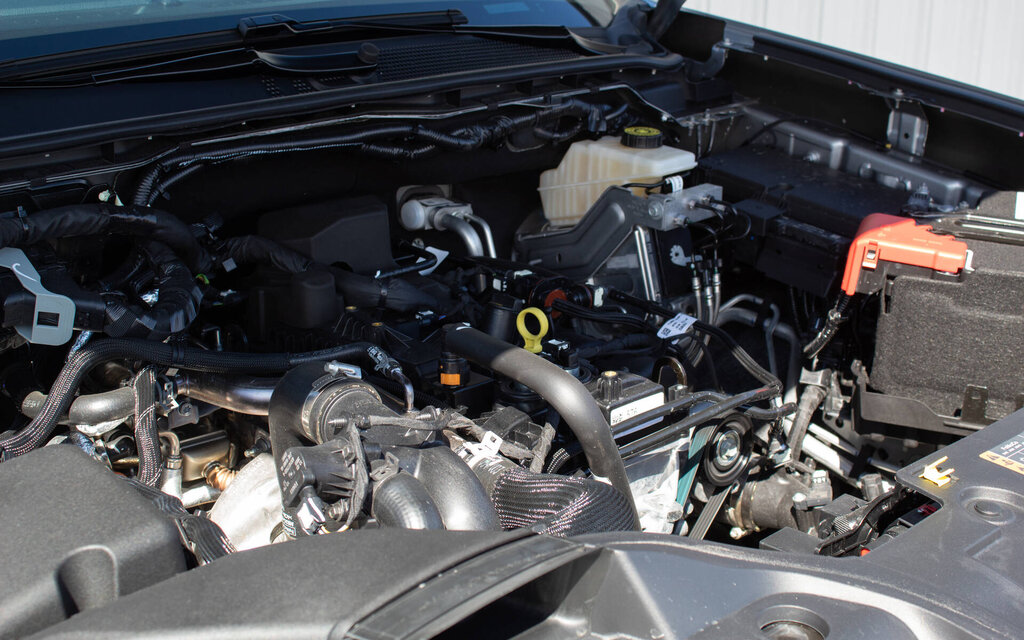
With 270 horsepower and 310 lb-ft of torque on tap, acceleration feels lively once the engine revs get past a certain point. At low revs, throttle response is slow and performance is a bit underwhelming. The 10-speed automatic transmission deserves credit for shifting gears quickly and enabling instantaneous downshifts in manual mode (upshifts are another story).
The roads in the Salt Lake City area are typically wide and well paved, causing no jolts or hops in the Ranger’s ride. That being said, the suspension is kind of soft, so you can expect the truck to bounce over bumps and nosedive when braking. A stiffer calibration would work best as far as we’re concerned, but you or other drivers might feel otherwise. One thing’s for sure: the longer wheelbase and wider tracks (about 2 inches each) help stabilize the ride.
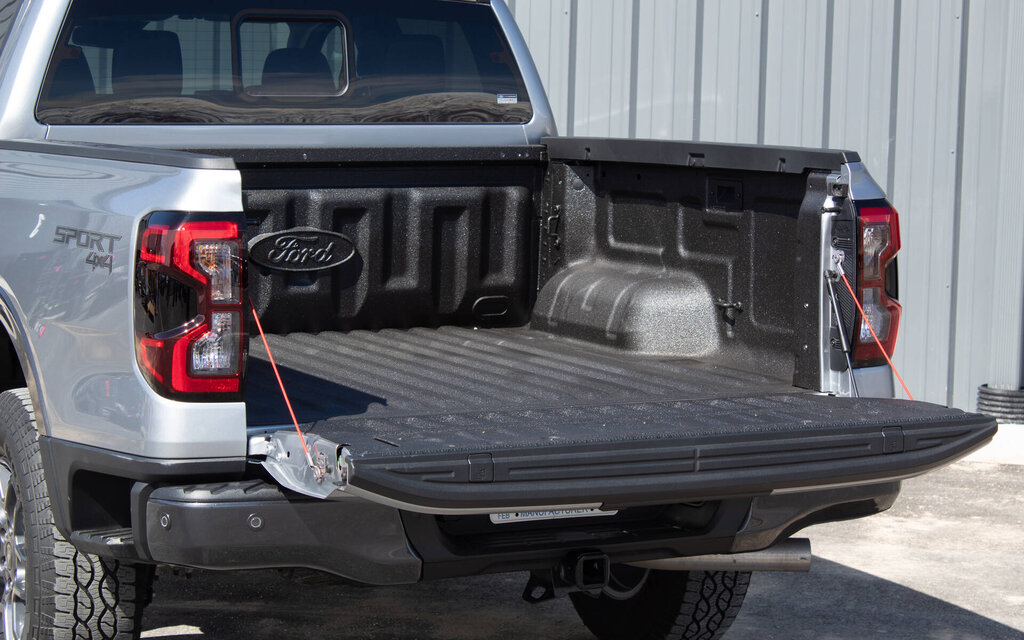
The seats offer multiple adjustments and generous lateral support, while precise and responsive steering makes for agile handling. The instruments are straightforward, just like before, and there are various drive modes to choose from if you want, say, better throttle response. One thing Ford engineers should revise is brake pedal feel, because you need to push deep and hard on the pedal to get decent braking power.
Adaptive cruise control and assisted steering take some fatigue out of long trips, but we found that the whole semi-autonomous driving tech could use more fine-tuning. Also, the lane keeping assist feature allowed the Ranger to encroach on adjacent lanes quite a bit before stepping in.
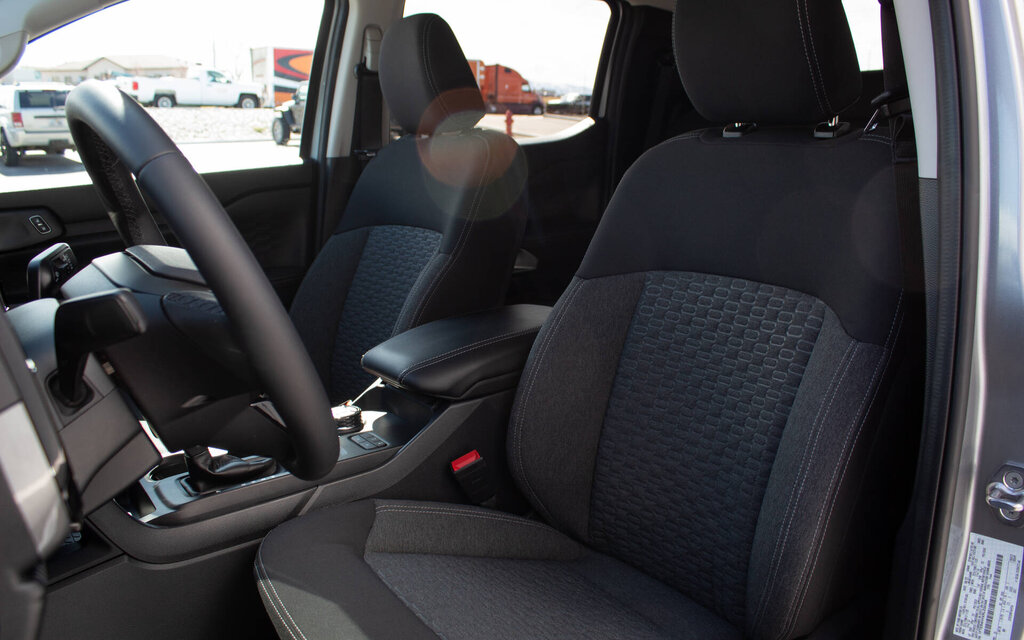
What about fuel consumption? The test drive around Salt Lake City involved mostly highways and was way too short to make a proper assessment. For the record, we achieved 11.7 L/100 km whereas Natural Resources Canada rates the 2024 Ford Ranger at a combined 11 L/100 km with the four-cylinder engine and 11.5 L/100 km with the V6.
We Tested the Ranger Raptor, Too
For the first time in North America, Ford is offering the Ranger Raptor, which will inevitably prove to be a big hit among off-road enthusiasts. There’s a lot to say about this model and our review is coming up in just a couple of days, so don’t miss it.
The standard Ranger arrives in three trim levels including XL (MSRP from $41,870), XLT ($46,120) and Lariat ($54,320). Sport and FX4 packages are available, as well. All Canadian-spec models feature a 4WD system with two-speed transfer case.
Overall, the latest Ford Ranger is a pleasant evolution with a choice of two competent engines, not to mention the fearsome Raptor. All that’s missing is the plug-in hybrid variant offered in Europe and Australia. Will Ford change its mind and bring it here seeing how demand for full EVs like the F-150 Lightning has cooled off?


